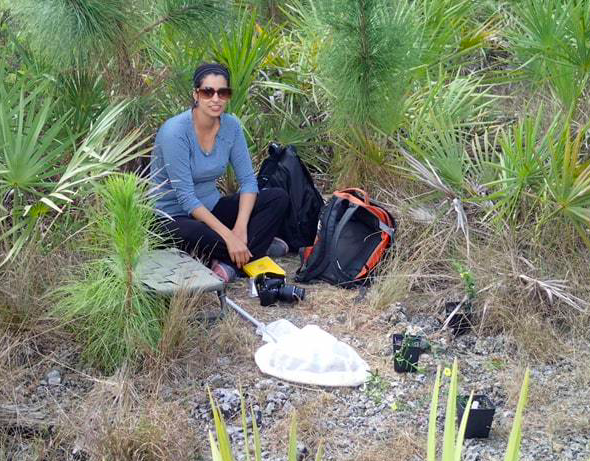Lillie Schwier
Staff Writer

Beyte Barrios Roque dreamed of becoming a biology professor since she was in high school, inspired by her own teacher.
“She opened the door to biology for me,” Barrios said.
Barrios obtained her undergraduate degree from the University of Havana in 2002 before moving to Miami in 2004.
Born and raised in Cuba, Spanish was Barrios’ first language. Aware that pursuing a degree in STEM would be challenging as a female, she knew it would be even more difficult because she only spoke Spanish. Although she was very knowledgeable in her field, she faced a significant learning curve when entering the American education system because she didn’t know English.
“[I was] highly prepared and educated when I came to this country,” Barrios said. “But, I didn’t speak English and I have to do whatever to get into science, and the first thing you have to do is learn English.”
For five years, Barrios worked as a biological technician while taking English classes. After she finished these classes, she enrolled in Florida International University, where she earned her master’s and Ph.D. During that time, Barrios studied plant ecology and taxonomy, focusing on specific types of ferns, breeding systems, fermentation and pollination.
After completing her education, Barrios taught at St. Pete College for two years before earning her teaching certification in biology, chemistry and special education. She then became a high school chemistry and biology special education teacher at Pepin Academy in Tampa.
Five years later, Barrios wanted to revisit her dream of becoming a college professor. She applied to FSC, knowing she could teach small classes and develop close ties with her students.
Barrios also wanted to increase minority representation within the school’s faculty. Being a female, a minority, and a migrant, Barrios finds diversity and inclusion extremely important. Barrios had not experienced adequate representation in education and lacked role models. Despite this, she never wavered from her true self.
“Better for me to be me than someone I’m not,” Barrios said.
Barrios’ experience motivates her to be a role model for all of her students, especially those who are minorities or who may be struggling in any capacity.
“Representation matters,” Barrios said. “When you have a person that looks like you and you see that that person has the same experience that you have had, you can look to that person as a role model. That is exactly what I am trying to do.”
While she stated that there are a lot of women in STEM, there are very few migrant women in science, especially people who migrated later in life.
Barrios herself came to the United States at the age of 24 to further her education. She is a first-generation immigrant and feels she is responsible for making improvements to science and education. She hopes her students can connect with her experiences.
“I kind of want to be the role model that the students need to see that ‘if she can, and she is there, then we can, and we can work as hard as she did to get in that position,’” Barrios said.
Her experiences molded her belief in perseverance for success, and now encourages her students that even if they can’t initially achieve their goals, they should always keep trying. She advises her students to focus on small goals and take each step while keeping their main ambitions in sight.







